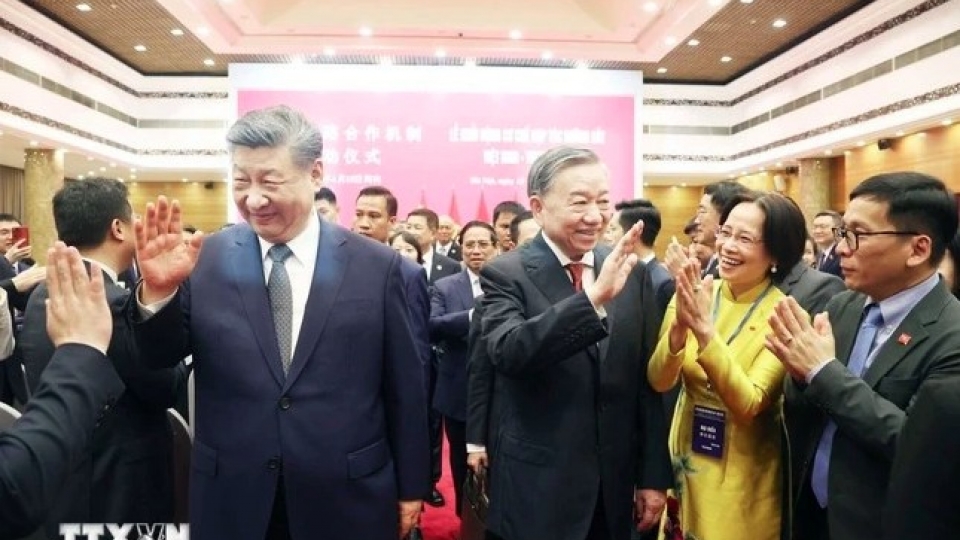Vietnam seeks to expand judicial cooperation with China
A high-ranking delegation of the Supreme People's Court of Vietnam led by its Chief Justice Le Minh Tri paid a working visit to China’s Guangdong province from June 3 to 5.

During the trip, the delegation held working sessions with the Guangdong High People's Court (GHPC), the Shenzhen Intermediate People's Court (SIPC), and the Shenzhen Court of International Arbitration (SCIA), focusing on development and experience in applying artificial intelligence (AI) to support judicial proceedings in the two countries’ courts.
Tri highlighted the fruitful development of bilateral relations, noting that it has been expanded across all areas. He affirmed that strengthening and developing a stable and long-term friendship and cooperation with China is a consistent policy, an objective requirement, a strategic choice, and a top priority in Vietnam’s foreign policy.
The Vietnamese official expressed his admiration and appreciation for the prosperous development of Guangdong and the positive achievements of the GHPC in particular, stressing that these results have significantly contributed to China’s success and position.
Tri stated that the trip aims to realise the Joint Statement and common perceptions reached by the top leaders of the two parties and countries during Chinese President Xi Jinping’s state visit to Vietnam in April 2025, as the two sides identified judicial cooperation a cooperation pillar of the bilateral ties.
Through the visit, the relationship between the Supreme People's Courts—and the broader court systems—of the two nations is expected to be elevated to a new height, on par with the connotation and new position of the Vietnam–China relations.
Judicial cooperation between the two countries—led by their Supreme People's Courts—has been continuously fostered and expanded in various aspects, Tri said, noting that building on the cooperation agreement signed in 2018, cooperative activities have increasingly deepened from central to local levels, including regular exchanges of all-level delegations, the alternating organisation of bilateral conferences.
Vietnam’s Supreme People’s Court has also actively participated in multilateral forums and international conferences hosted by China, he added.
Tri took the occasion to share some of the key achievements of Vietnam’s people’s court system, especially in streamlining the court system to ensure greater effectiveness and efficiency.
He hoped that the Vietnamese delegation would gain insights from Guangdong’s experience in judicial reform. He also expressed a strong desire to establish and further intensify cooperation at both central and local levels, particularly between provincial and municipal courts of Vietnam and the GHPC.
Wan Guoying, deputy chief justice of the GHPC, warmly welcomed the Vietnamese delegation, noting that in April, Chinese President Xi Jinping chose Vietnam as his first foreign destination in 2025.
The two countries' leaders set key directions for building a Vietnam–China community with a shared future that carries strategic significance, he said, adding that judicial cooperation between the two sides has become closer.
China and Vietnam both possess valuable experience in the judicial field, which they can share through exchanges and cooperation to further advance the development of their judicial sectors, he said, expressing his hope that the two sides’ judicial bodies will further strengthen exchanges and dialogue in the coming time.
As part of the visit, the Vietnamese delegation toured the Nanshan legal and culture museum, the Shenzhen Reform and Opening-up Museum, and the SIPC’s Bankruptcy Tribunal, and the Qianhai Court.




